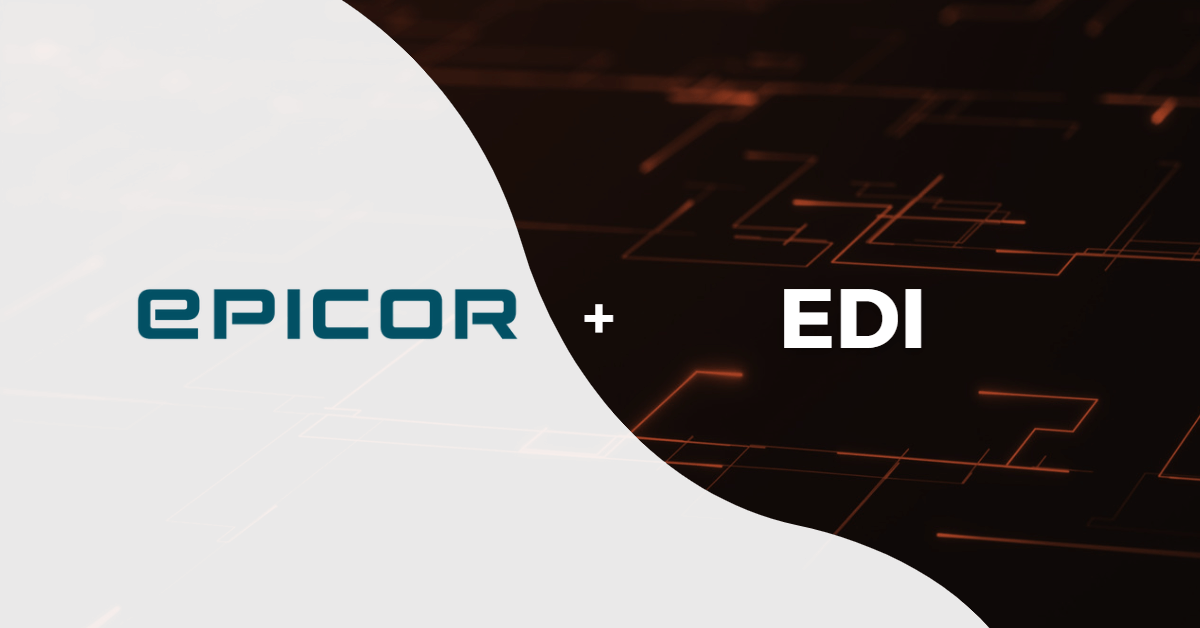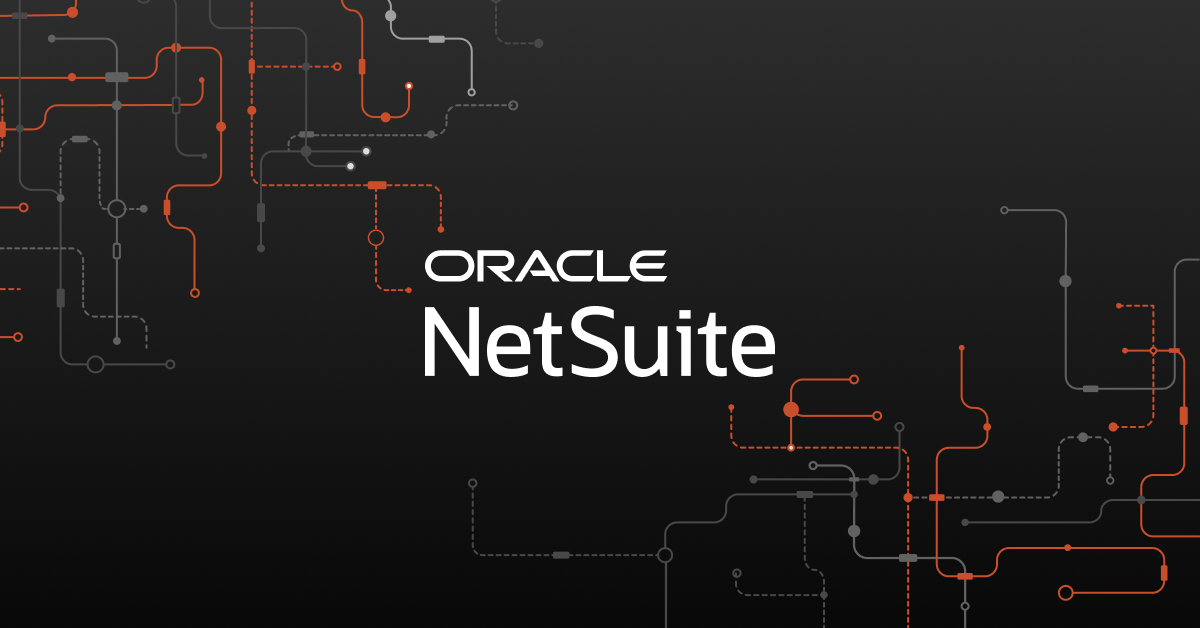As a wholesale distributor or manufacturer using the Epicor ERP platform, integrating EDI (Electronic Data Interchange) can provide a significant boost to your business operations. By automating the exchange of business documents between trading partners and the ERP system, Epicor EDI Integration enhances data accuracy, accelerates business cycles, and improves supply chain visibility.
Enterprise resource planning (ERP) and electronic data interchange (EDI) have become vital components of modern business operations. ERP systems centralize and streamline various business processes, while EDI facilitates the exchange of critical information between multiple parties, particularly in logistics and supply chain management.
While an ERP’s primary function is to automate workflows and provide information access across the organization, it falls short without a robust EDI solution. Leading companies now recognize that the ultimate goal is achieving integrated operations, which necessitates leveraging data in its native EDI format that complements ERP information.
Contents
The ERP-EDI Relationship: Choosing the Right Integration Approach
When considering Epicor EDI Integration, you have several options to explore. Let’s examine the most popular approaches:
Use a local EDI software (EDI converter)
Suitable for companies with in-house EDI expertise and resources, this option allows for message transformation and routing to business partners. However, it requires handling all EDI tasks internally, such as setup, testing, mapping, monitoring, and updates.
Utilize an Integration Platform as a Service (iPaaS) solution
Utilizing a third-party integration platform offers EDI capabilities in the cloud, providing control over routing and mapping. While it requires internal input and expertise, the advantage is constant updates and the ability to respond to changing requirements.
Opt for EDI as a Service
This approach, often the most logical choice for businesses with limited internal resources, transfers all EDI tasks to a service provider via the cloud. It eliminates the need for extensive internal involvement and ensures ongoing monitoring, support, and flexibility.
Read More: Top 13 ERP Integration Tools & Platforms (Reviewed)
The Value of Automated Epicor EDI Integration
Traditionally, EDI and ERP systems have operated independently, limiting their ability to integrate effectively. However, with advancements in integration technology, it is now possible to create a seamless connection between the two, offering several significant advantages. Here are some of the benefits of Epicor EDI integration
Compliance and Automation: Quickly meet trading partner requirements and capitalize on the efficiency of automated processes.
Data Accuracy: Automating the ingestion and transformation of EDI data into the ERP system eliminates the need for manual data entry, significantly reducing the risk of errors. Accurate data is crucial for smooth business operations and ensures reliable decision-making processes.
Better Business Cycle Speed: Epicor EDI Integration allows for the rapid exchange of EDI transactions with trading partners, reducing processing times from days to minutes. Faster business cycles lead to improved efficiency, customer satisfaction, and overall productivity.
High-End Supply Chain Visibility: By integrating EDI and ERP systems, companies gain greater visibility into their supply chain operations. Accurate and automated data flow provides real-time insights, allowing businesses to identify bottlenecks, track orders, and optimize their overall supply chain performance.
Recommended Reading: eCommerce Integration: Types, Benefits, Challenges & Solution
Challenges Arising from Manual EDI ERP Integration
When you integrate EDI data into your Epicor back-office system, there is a risk of losing critical details contained within EDI documents. For instance, your ERP package may only support a ship date, while your customers provide ship by, ship no later than, and expected delivery dates in their EDI messages.
Failure to capture and retain these vital message details can result in unplanned IT projects, necessitating the development of custom reporting. This not only increases the overall cost of the EDI data integration project but also adds complexity to your environment, potentially jeopardizing your most important business relationships.
Improper EDI ERP communication can lead to several challenges that hinder operational efficiency and customer satisfaction:
- When processes that should be automated require manual intervention, the risk of errors increases.
- Incomplete or manually generated invoices can result in chargebacks and underpayment of purchase orders.
- Limited access to important information leads to time-intensive issue resolution, increasing thresholds for write-offs.
- Inadequate visibility into critical data compromises decision-making and hampers operational control.
- Cumbersome research tools impede productivity, slowing down business processes.
- Failing to build customizations for unforeseen circumstances can result in subpar customer service, damaging relationships.
Relevant Reading: Need for Magento EDI Integration
DCKAP Integrator: Streamlining EDI and Epicor Integration
To simplify the Epicor EDI Integration process or Microsoft Dynamics 365 edi integration , companies can utilize a solution like DCKAP Integrator. This integration tool enables seamless electronic data interchange compliance for businesses seeking to connect with Epicor. By utilizing DCKAP Integrator, organizations can:
Streamlining Business Processes
DCKAP Integrator acts as an Integration Platform as a Service (iPaaS), bridging the gap between Epicor ERP and other business applications such as EDI, ecommerce platforms, PIM systems, and more.
With its multi-platform integration capability, companies can eliminate manual data entry and reduce errors, resulting in streamlined business processes and enhanced productivity.
Real-Time Data Synchronization
Ensures that data flows seamlessly between Epicor ERP and EDI in real-time. Moreover, the real-time synchronization allows businesses to maintain accurate, up-to-date information across their entire digital ecosystem, enabling better decision-making, improved customer service, and increased operational efficiency.
Advanced Mapping & Modifiers
Mapping data fields between different systems can be a complex task, especially for non-technical users. DCKAP Integrator simplifies this process by providing easy-to-use mapping tools and modifiers.
With these features, businesses can effortlessly map data fields from Epicor ERP to their desired formats, ensuring compatibility and integration across systems without the need for extensive coding or technical expertise.
Automated Scheduling
Offers automated scheduling capabilities, enabling businesses to set up data synchronization tasks based on their preferred schedule. The automated scheduling feature ensures that data updates, such as inventory changes, order processing, or customer information, are automatically synchronized between Epicor ERP and EDI at the designated times.
Advanced Logging and Record-Keeping
Keeping track of data transactions is essential for auditing purposes and maintaining data integrity. DCKAP Integrator provides advanced logging capabilities that automatically log and back up every piece of information transferred to and from Epicor ERP.
This comprehensive logging ensures that businesses have a detailed record of all integration activities, enhancing transparency, accountability, and data security.
Secure Transactions
Data security is a top priority for businesses when integrating systems. DCKAP Integrator ensures secure transactions by encrypting data during the integration process. This encryption safeguards sensitive information, protecting it from unauthorized access and ensuring compliance with industry regulations.
Also Read: Epicor eCommerce Integration Explained [Steps, Methods & Use Cases]
Get Low Code Epicor ERP EDI Integration With DCKAP Integrator
Epicor EDI Integration is a critical aspect of modern supply chain operations. By leveraging the benefits of automated integration, businesses can achieve improved data accuracy, faster business cycles, and enhanced supply chain visibility.
With the availability of various integration options and tools like DCKAP Integrator, organizations can streamline the integration process and unlock the full potential of their Epicor ERP system.
While Epicor does offer EDI services as part of its ERP package, the scalability of the EDI integration will depend on various factors such as the volume of transactions, the complexity of integration requirements, and the specific capabilities of the Epicor EDI module.
For organizations with extensive EDI requirements or complex integration needs, it’s advisable to thoroughly evaluate Epicor’s EDI capabilities and assess whether they align with your specific scalability requirements.
Additionally, exploring third-party EDI service providers or integration tools can also provide scalable solutions to complement Epicor’s native EDI functionality.
Want to know more about Epicor ERP EDI Integration? Get in touch with our DCKAP Integration partner to schedule a demo.
FAQ About ERP And EDI Integration
Why do companies require ERP-Integrated EDI?
Companies utilize software to process EDI documents, which require standardized formats for seamless communication and comprehension by their computer systems. With the prevalence of EDI solutions, numerous EDI standards are available in the market.
To ensure compatibility with their existing software and that of their suppliers, trading partners, and business associates, companies need an EDI solution that integrates seamlessly with their ERP system. This integration enhances the capabilities of EDI and provides a more cohesive and efficient experience.
How does EDI – ERP integration automate data translation?
A well-executed integration allows the automatic translation of order data from EDI transactions, such as Orders and Invoices, directly into the ERP. This eliminates the need for manual data entry, which is prone to errors and time-consuming.
Can an ERP system be used for EDI transactions?
While ERPs are powerful systems for managing business operations, they are not specifically designed for EDI. Attempting to use an ERP for EDI transactions without an external EDI provider often results in failure. ERPs lack the necessary specifications of retailers and may not keep up with the evolving standards of trading partners, jeopardizing.




